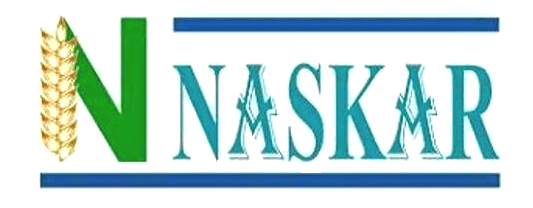The world of present businesses in our country is growing in leaps and bounds and to match the pace of such growth every entrepreneur needs funds to bolster their business with optimum boost. So, to make the whole thing very much positive the most fruitful way of arranging the business funds is by availing unsecured working capital finance from bank for micro, small and medium enterprises (MSMEs).
What is unsecured working capital finance?
An unsecured working capital finance is a short-term working capital loan which is provided by the scheduled banks to the business persons who are especially into manufacturing, trading and providing services under MSME segment for a maximum period of 12 months on yearly renewal basis against a fixed rate of interest per annum.
Although theses short-term working capital loans are termed as unsecured working capital finance but in some products like cash credit or packing credit the inventory and book debts of the company are hypothecated as primary collateral.
But immovable fixed assets like self-owned residential or commercial or industrial properties or movable fixed assets like gold and jewellery or any other assets of such kinds are not mortgaged or charged.
What are the options one can get under Unsecured Working Capital Finance from Bank?
An unsecured working capital finance has been designed with many innovative options for the business people as per their specific requirements. There are varieties of unsecured working capital products available in the Indian financing market from various leading banks public sector and private sector banks.
Working capital management outlines a major part of the daily activities of an entrepreneur. Therefore, they have been divided into different types so that one can avail it according to their business needs which are as under:
1. Cash Credit
These are the most significant and widely used types of unsecured working capital finance used by MSMEs. This type of cash facility is provided by commercial banks. The borrower is approved for a specific maximum limit – a number of funds that one can use only for meeting various business needs and specifications for making business payments.
One of the biggest advantages of availing this loan is that cash credit works like a credit card in that the borrower pays interest only on the amount withdrawn as per the withdrawal limit so permitted by the lender bank as determined by calculating drawing power.
2. Overdraft (OD)
Overdraft is availed by most businesses wherein the borrower avails a specific amount under unsecured working capital finance for utilizing it to pay for operating payments. The rates of interest and line of credit depend on the relationship of the company with the lender bank.
Moreover, like cash credit the borrower has to pay the interest only on the amount which is utilized by it, instead of the whole amount. It is the most cost-efficient solution as the borrower keeps on depositing the amount as and when he employs it, to save the interest cost.
Unlike cash credit the sanctioned limit is not operated as per the drawing power and the fund can be used for any other purposes which may not be related to the business.
3. Accounts Receivables
Accounts receivable financing or invoice financing is also a type of unsecured working capital finance for businesses that can be availed from scheduled banks. It is needed for financing a sales order received by the borrower and needs to make payments for providing the deliverables.
Accounts receivable financing is only for the sales orders which are confirmed but and for which the firm is unable to gather the required fund to pay for them. However, businesses must have an excellent record of credit for borrowing this loan.
4. Discounting or Invoice discounting
Bill Discounting or invoice discounting is a type of unsecured working capital finance which is probably the most common operations of business that is for generating bills on sales.
The statements are the proof or a verified document that is produced in front of debtors by a company to get the required money the debtors owe them. Banks provide this facility to these firms by offering them an amount after adding a discount on the amount of that bill on the bank interest rates.
The remaining amount would be paid back to the seller. As the bill matures, the bank would collect that discounted money from the debtor.
What are the benefits of unsecured Working Capital Finance?
The benefits of unsecured working capital finance are ample and very much fruitful from the business point of view. Every entrepreneur always wants to avail such benefits so as to meet the various kinds of operational expenses as per the requirement. Some of its major benefits has been discussed as under:
Short-Tenured:
The repayment period of unsecured working capital finance is for a maximum period 12 months thus making it a loan of a relatively shorter duration. The borrower does not have to plan for long-term EMIs while availing this loan. Working capital loans to new businesses are offered in form of short-term loans with various features especially under the Government schemes like CGTMSE scheme, MUDRA, Strat-up India scheme, MSME loans in 59 Minutes etc.
Handle Financial Difficulties:
Even if the business is flourishing and has lots of fixed assets, it is not entirely unthinkable to find the business lending in a financial crisis at times. In situations like this, nothing can be better than unsecured working capital finance.
Under the best of circumstances, poor working capital leads to financial pressure on a company, increased borrowing, and late payments to creditors – all of which result in a lower credit rating. A lower credit rating means banks charge a higher interest rate for any money borrowed.
Applying and using unsecured working capital finance can lead business person to its destination by covering the shortages so occurred.
No Collateral or Security Required for Unsecured Working Capital Finance:
Unlike most other unsecured business or even personal loans for business persons, no security or collateral in form of fixed assets are required to avail an unsecured working capital finance from bank.
If the applicant is having a good credit history, then one may become eligible for unsecured working capital finance as per the requirement. The bank will check and verify the creditworthiness and credit history and as per the parameter and will provide the loan as per the financial eligibility and end use.
Helps in lean periods of the seasonal businesses
If the applicants running a seasonal business that witnessed high sales during a particular season only, then one can probably face risks and challenges that create problems in the annual revenues.
Then one must opt for unsecured working capital finance. These loans can help to overcome the blows otherwise created by the lack of adequate spending potential.
Purpose of Utilisation:
Unsecured working capital finance comes with no restrictions on how the funds are used. However, it is always instructed to use the fund only for valid needs related to the business.
This is only done to ensure that the business does not start to depend solely on credit to manage expenses and the finance are utilised for the benefits of the business. Even so, one can use the money for all your business requirements and nobody can question this.
What is the eligibility criteria required for unsecured Working Capital Finance from Banks?
An unsecured working capital finance is a credit facility provided to those applicants who are not willing to provide any fixed asset in form of tangible assets like self-owned residential or commercial or industrial property as collateral security and asking to avail the loan mainly on the parameters of the business loan eligibility criteria as per the policies of the lender bank.
So, to avail the same the applicant must fulfill the basic business loan eligibility criteria as mentioned below:
- Age: The minimum age for the applicant who can be a proprietor or a partner or a director as per the profile of the company must be 23 years during the time of application and should not be above 65 years during the maturity of the loan.
- Credit Score and Credit History: The credit score and credit track records are considered to be the first and foremost parameter of eligibility criteria that one should be fulfilling while applying for an unsecured working capital finance. The personal credit score of 750 for the individuals with satisfying credit history are very much required for a successful application of for the same. In case of company being an applicant, the company credit score must be within 1 to 5.
- Ownership: The place of business or the residential address of the loan applicant who may be the sole proprietor or one of the partners or directors of the company must be ownership.
- Business vintage and continuity: The business must be having a complete vintage period of 3 years. Older the business, greater the chance of getting a business loan with favourable interest rate and other conditions.
- Positive Financial Trend: The business should be having a positive financial trend in the course of the business in the last three years This is considered as one of the important parameters in eligibility criteria. The negative trend in form of loss or deterioration of profit are not entertained by the lender bank or NBFC or fintech companies for unsecured business loan.
- Banking Transactions: Every lender bank where the proposal for unsecured working capital finance is placed always expect the majority business transactions are made through business accounts in the bank compare to the turnover shown as per the financials.
- Updated and regularised business documents: Each and every document like all the licences related to the businesses, business related taxes, direct income tax returns and goods and service tax returns should be up to date and must be at par with the rules and regulations of the concerned governing authorities and must not be an issue of compliance for the same while applying for an unsecured working capital finance.

What are the documents required for unsecured Working Capital Finance as per the banks in India?
The documents that are required majorly to match the above-mentioned eligibility criteria of the banks are as follows:
Know your Customers (KYC) Documents:
The documents which are required to be submitted by the applicant while applying for the unsecured working capital finance with scheduled banks are as under:
- Proof of Identity- Pan Card, Aadhaar Card, Voters’ ID Card, Passport, Driving Licence with latest photographs
- Proof of Address- Aadhaar Card, Voters’ ID Card, Passport, Utility Bills, Digital Ration Card
- Ownership Proof- Latest Electricity Bill and latest property tax receipt
Business KYC Documents:
The documents that are required to match eligibility criteria to establish the required parameters of business identity, vintage and continuity are as follows:
- Company Pan Card
- Partnership Deed or MOA and AOA as per the profile of the company
- Letter of Incorporation and Share Holding Pattern
- Trade licences for the last three consecutive years and one older trade licence
- Professional Tax Certificate
- Udyam Aadhaar registration Certificate
- GST Registration Certificate
- Other applicable licences as per the profile of the business entity like FSSAI, Drug Licences etc.
Financial Documents:
The financial documents that are required to establish the vital point of eligibility criteria of the banks in India for positive financial trend in profitability and growth of the business are mentioned as under:
- Income Tax Returns for the last two or three years as per the policies of the lender bank where the loan application been placed
- GST returns for the last one year
Documents of Banking Transactions:
To establish the authenticity of the total turnover and profitability of the company so produced as per the financial documents the applicant business person must submit the statements of all the bank accounts for the last one year to comply with the business loan eligibility criteria.
Credit track records:
All the credit history track records in form of sanction letters and loan account statements of the active and ongoing loans are required to be submitted along with the no objection certificates of the closed loans as per the eligibility criteria of the banks.
Conclusion:
The modern age businesses operate at a rapid pace and with a sizable portion of the shift in the financial structure and growth in individual purchasing power can be attributed to this. The banks have become more adaptable in their operational norms to accommodate reluctant users from various backgrounds as well.
NASKAR FINANCIAL SERVICES have come up with innumerable options inform of both public sector banks and private sector banks for the unsecured working capital finance requirements to accommodate a range of applicants, including self-employed, professionals and non-professionals, business persons, individuals, commercial and agricultural enterprises, ambitious women entrepreneurs and all other business enterprises by providing the most suitable way to develop the business loan eligibility criteria that are required for availing unsecured working capital finance successfully.







